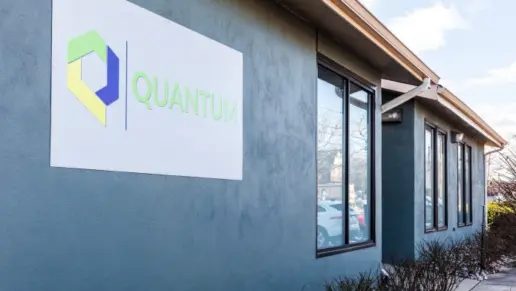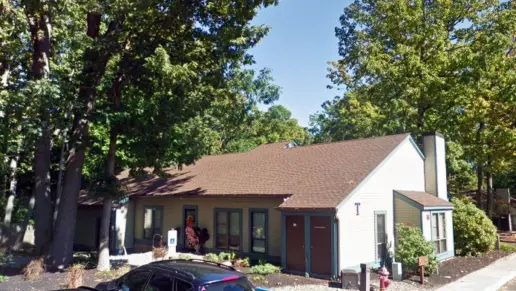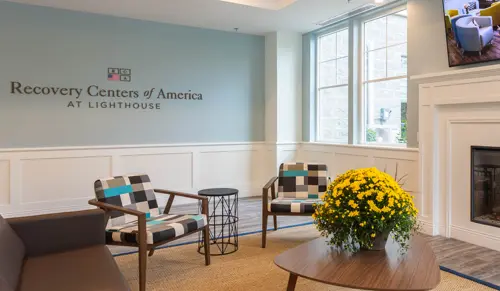About Camden Treatment Associates
You’ll find Camden Treatment Associates in Camden, New Jersey, less than 20 minutes outside of Philadelphia. Since 2001, their treatment center has welcomed adults battling substance use disorder, particularly opioid addiction. You’ll benefit from specialized care in various outpatient settings to start or continue your recovery journey.
You can participate in day treatment, intensive outpatient programs, or standard outpatient care while living at home. They provide a blended approach, including medication assisted treatment (MAT), counseling, and case management. With MAT, you’re prescribed methadone, an FDA approved medication, to help you overcome withdrawal symptoms and cravings that can hinder recovery. You’ll also participate in counseling to get to the root of addiction and gain coping skills to make healthier choices.
Improving Your Overall Wellness
What stands out most to me is their case management services. Their team connects you with nonprofit and government organizations to address your unique needs. They break barriers to essential resources and services, including food, housing, shelter, employment, disability assistance, and much more. You’ll benefit from personalized care to improve your overall wellbeing and promote long term recovery.
Specialized Pregnancy Care
Another standout feature I noticed was their prenatal services. Their team conducts different diagnostic tests, including pregnancy screening. You can access onsite pregnancy counseling to understand your treatment options and determine the best route for you. You’ll benefit from compassionate care to support you and your baby’s health throughout pregnancy and recovery.
A Range of Client Experiences
Many former clients enjoyed their services. Some mentioned life changing care from a supportive staff. Still, some clients had poor experiences with staff and felt they lacked empathy. As always, be sure to research and consider multiple facilities to find the best fit.
Rehab Score
Other Forms of Payment
Private insurance refers to any kind of healthcare coverage that isn't from the state or federal government. This includes individual and family plans offered by an employer or purchased from the Insurance Marketplace. Every plan will have different requirements and out of pocket costs so be sure to get the full details before you start treatment.
Self-pay involves paying for treatment out of your own pocket. You can use savings or credit, get a personal loan, or receive help from family and friends to fund your treatment. If you don't have insurance or your insurance plan doesn't cover a specific program, self-pay can help ensure you still get the care you need.
Financial aid can take many forms. Centers may have grants or scholarships available to clients who meet eligibility requirements. Programs that receive SAMHSA grants may have financial aid available for those who need treatment as well. Grants and scholarships can help you pai for treatment without having to repay.
Sliding scale payments are based on a client's income and family size. The goal is to make treatment affordable to everyone. By taking these factors into account, addiction recovery care providers help ensure that your treatment does not become a financial burden to you or your family, eliminating one barrier to care.
Medicaid is a state based program that helps lower-income individuals and families pay for healthcare. Medicaid covers addiction treatment so those enrolled can use their coverage to pay for rehab. When a program accepts Medicaid the client often pays very little or nothing out of their own pocket.
Addiction Treatments
Levels of Care
Treatments
The goal of treatment for alcoholism is abstinence. Those with poor social support, poor motivation, or psychiatric disorders tend to relapse within a few years of treatment. For these people, success is measured by longer periods of abstinence, reduced use of alcohol, better health, and improved social functioning. Recovery and Maintenance are usually based on 12 step programs and AA meetings.
Drug rehab in New Jersey is the process of addressing the complex issues involved with addiction. Challenges are identified and addressed through individual and group counseling. Participants learn how to manage these issues without the use of substances.
A combined mental health and substance abuse rehab has the staff and resources available to handle individuals with both mental health and substance abuse issues. It can be challenging to determine where a specific symptom stems from (a mental health issue or an issue related to substance abuse), so mental health and substance abuse professionals are helpful in detangling symptoms and keeping treatment on track.
Opioid rehabs specialize in supporting those recovering from opioid addiction. They treat those suffering from addiction to illegal opioids like heroin, as well as prescription drugs like oxycodone. These centers typically combine both physical as well as mental and emotional support to help stop addiction. Physical support often includes medical detox and subsequent medical support (including medication), and mental support includes in-depth therapy to address the underlying causes of addiction.
Programs



Clinical Services
Group therapy settings offer you a diverse perspective on addiction and recovery. People from a variety of backgrounds gather together to discuss their challenges and speak openly and in a nonjudgmental atmosphere. This enriches your experience and your understanding of addiction and recovery.
In individual therapy, a patient meets one-on-one with a trained psychologist or counselor. Therapy is a pivotal part of effective substance abuse treatment, as it often covers root causes of addiction, including challenges faced by the patient in their social, family, and work/school life.
Building life skills allows you to demolish negative patterns of behavior and build new, healthy patterns. By building new thought processes, coping strategies, and behaviors, you establish a solid foundation for recovery.
Contact Information
508 Atlantic Avenue
Camden, NJ 08104


